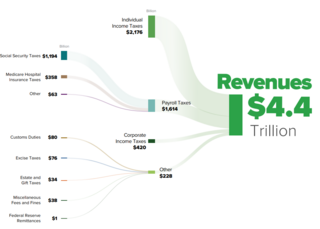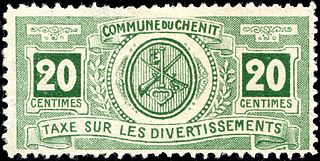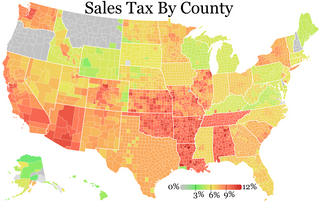Internet tax by country
Africa
Uganda
On May 30, 2018, the Ugandan parliament passed The Excise Duty Amendment Bill which proposed that;
- A person providing an excisable service becomes liable to pay excise duty on that service on the earlier of the date on which the performance of the service is completed; the date on which payment for the service is made; or the date on which an invoice is issued.
- A telecommunications service operator providing data used for accessing over the top services is liable to account for and pay excise duty on the access to the over the top services.
“Over the top services" are defined as the transmission or receipt of voice or messages over the internet protocol network and includes access to virtual private networks but does not include educational or research sites prescribed by the Minister by notice in the Gazette.
Americas
United States
| This article is part of a series on |
| Taxation in the United States |
|---|
 |
In 1996, several U.S. states and municipalities began to see Internet services as a potential source of tax revenue.
The 1998 Internet Tax Freedom Act halted the expansion of direct taxation of the Internet, grandfathering existing taxes in ten states. [12] In the United States alone, some 30,000 taxing jurisdictions could otherwise have laid claim to taxes on a piece of the Internet. [13] The law, however, did not affect sales taxes applied to online purchases. These continue to be taxed at varying rates depending on the jurisdiction, in the same way that phone and mail orders are taxed.
The 1998 Internet Tax Freedom Act was authored by Representative Christopher Cox, R-CA and Senator Ron Wyden, D-OR and signed into law on October 21, 1998 by President Bill Clinton in an effort to promote and preserve the commercial potential of the Internet. This law bars federal, state, and local governments from taxing Internet access and from imposing discriminatory Internet-only taxes such as bit taxes, bandwidth taxes, and e-mail taxes. The law also bars multiple taxes on electronic commerce.
The 1998 bill had been extended three times by the United States Congress since its original enactment and was last renewed on October 30, 2007 for 7 years. [14] On Feb. 11, 2016 the U.S. Congress passed the Permanent Internet Tax Freedom Act and sent the bill to President Barack Obama for his expected signature. [15]
Asia
Bhutan
In 2014, the Kingdom of Bhutan imposed a 5% sales tax on all internet services. [16] [17]
Pakistan
Government of Pakistan has imposed 14% tax on internet across Pakistan. With this new advance tax which can be reclaimed at the time of filing of returns 14% of the bill amount is supposed to get deducted on internet usage across Pakistan. [18] A vast majority of people took to Social networking websites to voice their grievances. With the imposition of this tax, Pakistan became the most heavily internet-taxed region of the world.
European Union
In March 2018 European Commission proposed new rules for digital taxation, including interim tax, with long-term solution that profits should be registered and taxed where businesses have significant interaction with users through digital channels. [19] In March 2019 the proposal was refused by European Council, being blocked by Ireland, Sweden and Denmark. [19] [20] However multiple Member States proposed national taxes based on the framework of the proposed interim tax.
Czech Republic
In November 2019 the Government of the Czech Republic approved digital tax of 7% [5] (not yet approved by the parliament [21] ) that will affect web-based services of businesses with an annual global turnover of over €750 million. [22] [5]
France
French President Nicolas Sarkozy announced on January 8, 2008, that he would propose taxing the Internet as a way to fund the country's state-owned television stations. [23] The proposition came as part of a broader plan for the French audiovisual network; the plan also included provisions such as the "total suppression of advertising on public channels" whose funding would then be aided by "an infinitesimal sales tax on new communication methods, like Internet access and mobile telephony.". [24] France passed a 3% Internet tax law in July 2019. [3]
Hungary
In 2014 the Hungarian government proposed an internet tax and were opposed by a mass movement against it. [25]
Italy
In October 2019 Italy approved a 3% digital tax. [4]
Rest of Europe
United Kingdom
In July 2019 the UK government published the Finance Bill 2019-20 [26] which included provision for a Digital Services Tax of 2% of revenues of companies with more than £500m global revenue and more than £25m UK revenue. [27] It was confirmed in the 2020 Budget that the tax would come into effect on 1 April 2020. [28] [29] The proposals were enacted as Part 2 of the Finance Act 2020.








